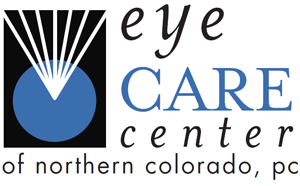As you get ready to welcome chillier months, adding sunglasses to your arsenal of cold-weather gear might be the last thing on your mind.
But when the temperature starts to drop, sunglasses should be one of the top winter accessories on your list.
Sunglasses are helpful to wear year-round. Because the sun sits lower in the sky and at a different angle during the winter months, it equates to greater sun exposure the more time you spend outdoors.
Whether you’re hitting the slopes or just taking a stroll around the neighborhood to combat cabin fever, here’s why it’s so important to keep wearing your sunglasses in the winter.
The Importance of Shielding Your Eyes in the Winter
The sun emits UV rays, which are a form of energy invisible to the naked eye. Measured on a scale, there are three types of UV rays — UVA, UVB, and UVC.
The first 2 levels on this spectrum can be damaging and can pose a variety of health threats directly to your eyes. Because fresh snow is so reflective, it can cast 85% of radiation upward off its surface!
Not wearing sunglasses during the winter can lead to a variety of health issues in your eyes, due to the damage the sun causes when it reflects off the snow.
Photokeratitis — also called “snow blindness” or “sunburn of the cornea” — can cause issues in your cornea over time like chronic inflammation, viral infections, ulcers, and blindness.
Cataracts are the leading cause of blindness worldwide, and it’s estimated that 20% of cases occur due to overexposure to UV light.
Repeated UV exposure can also lead to skin cancer on your eyelids. It can also damage your retina, which could result in loss of vision.
Plus, constant squinting can cause chronic headaches, eye fatigue, wrinkles, and premature aging of your skin.
Lastly, if you’re taking certain medications, like birth control, sulfa antibiotics, diuretics, retinol, or tranquilizers, your eyes and skin may become more susceptible to sun damage as a side effect.
Don’t be deceived by chilly temperatures — if the sun’s shining, it can still harm your eyes. That’s why sunglasses are your best bet to help keep your eyes protected, even in the winter!
Sunglasses as a Defense Against Winter Conditions
Wearing your sunglasses in the winter can help keep your eyes safe from more than just UV damage.
Sunglasses can offer an added layer of protection to your eyes against snow, debris, and ice in the air, acting as a shield to keep these irritants out and prevent physical damage from occurring to your eyes.
And since cold winter air can be ruthless, sunglasses may even help provide relief and prevention of dry eyes, which can lead to irritation.
Because snow blindness can still impact you in the car — and since your windshield doesn’t offer much defense against the sun — sunglasses can also help reduce glare and increase clarity and contrast when you’re driving too.
Choosing the Right Pair of Winter Sunglasses for You
Sunglasses are the best tool to protect your eyes from the sun, no matter if it’s summer or winter! But with endless options available on the market today, shopping for the perfect pair may leave you feeling overwhelmed.
When searching for the right pair of shades, experts agree that anti-reflective, polarized sunglasses are the best option. They should fit snugly on your face and should cover your entire eye area.
Not all polarized sunglasses are created equal — the best sunglasses need to offer protection from 100% of UV rays on the spectrum.
Lens color is another factor to consider since different shades provide different benefits. Gray lenses help to reduce brightness and glare and are ideal for use when driving.
For brightening vision on days with low light or low visibility, opt for brown lenses. Green lenses filter some blue light out and can help reduce strain on your eyes.
If you’re someone who participates in snow sports or if you live in an area where winter conditions are often hazy and foggy, yellow and orange lenses can help create contrast and dimension. And red and pink lenses can block blue light and help with visibility when you’re driving.
And if you really want to protect your eyes and look cool doing it, mirrored lenses are a great alternative. They take it a step further than colored lenses and deflect the glare of the sun away from your eyes altogether.
Sunglasses — Your Greatest Defense Against the Winter Sun
If you’re not doing it already, wearing sunglasses in the winter should become a top priority for optimal eye health.
It’s the simplest way to protect your eyes from damage caused by the winter sun and winter weather conditions.
And with so many cool styles to choose from, you’ll have fun selecting a pair that not only keeps your eyes safe, but that reflects your individual style, too.

